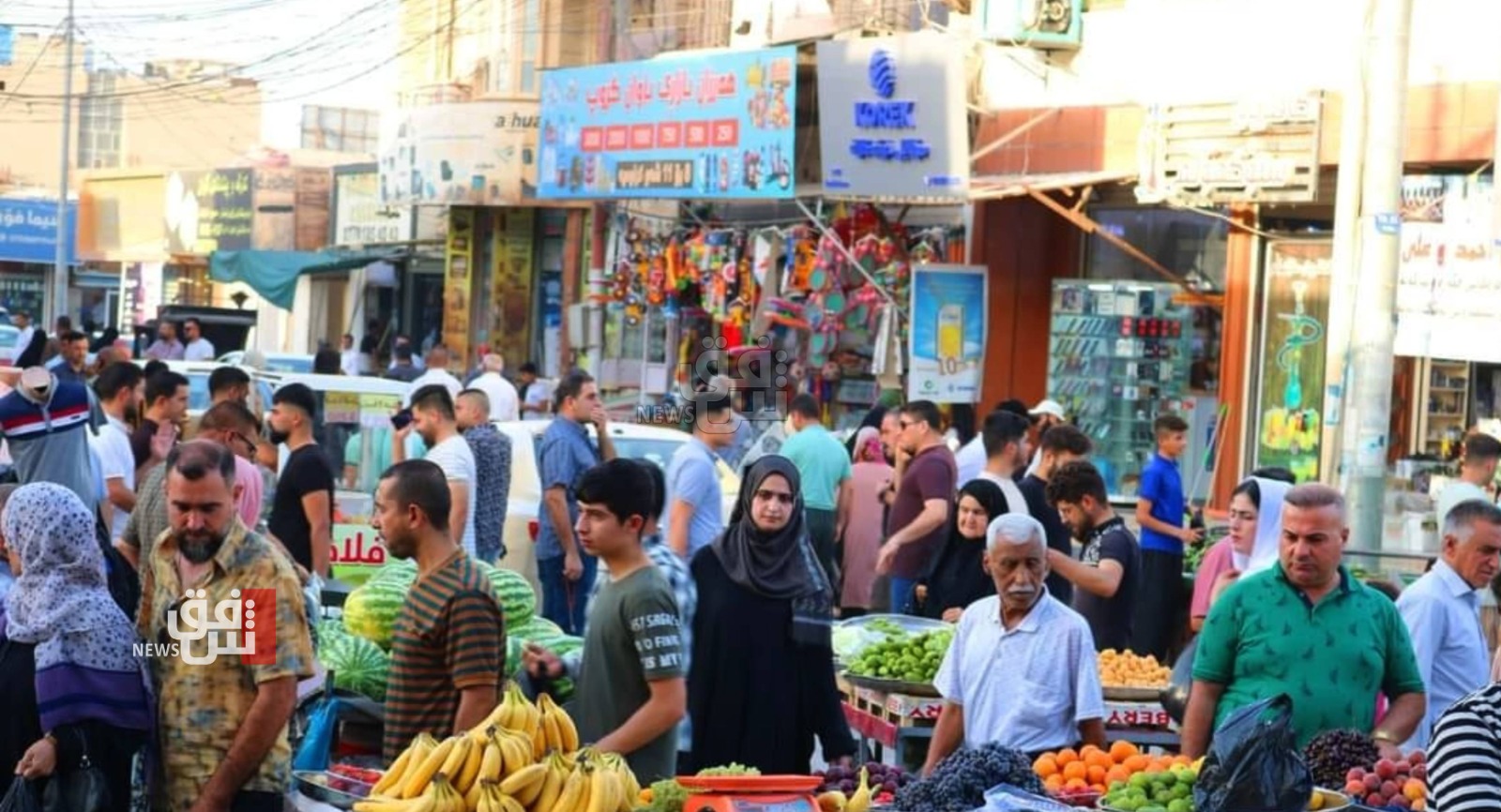Iraqis cut food spending by a third due to rising living costs.
 The Iraqi Ministry of Planning revealed on Friday that food spending by Iraqi families has halved. It used to constitute more than 60% of total income in recent years, and now falls to around 31-32%. This shift reflects a reallocation of resources toward housing, health, education, and other basic services.
The Iraqi Ministry of Planning revealed on Friday that food spending by Iraqi families has halved. It used to constitute more than 60% of total income in recent years, and now falls to around 31-32%. This shift reflects a reallocation of resources toward housing, health, education, and other basic services.
The ministry’s official spokesperson, Abdul Zahra Al-Hindawi, told Shafaq News Agency, “In previous years, Iraqi families spent the largest proportion of their income on food, exceeding 60%. Today, however, this percentage does not exceed a third, which is consistent with living priorities and the distribution of spending across various life needs.”
He pointed out that “recent government measures have contributed to achieving relative stability in food prices, despite some slight increases in specific commodities ranging between 0.5% and 3%.”
Al-Hindawi explained that “the ministry’s reports showed a 0.1% monthly decline in inflation during July, reflecting a limited but significant improvement in light of the current economic conditions.”
Expert View
Economic researcher Ali Abdullah believes that the shift in Iraqi household spending from food to other sectors such as housing, services, and education indicates a change in consumption patterns, but it does not necessarily mean an improvement in purchasing power.
“When 60% of income was spent on food, it was a sign of the fragility of the living situation,” Abdullah told Shafaq News Agency. “Today, despite the percentage dropping to about 30%, the rising costs of housing, energy, and transportation have made the ultimate cost of living more burdensome for citizens. This means that citizens have not actually felt a reduction in the burden, but rather the location of this burden has shifted from food to other elements.”
The Citizen’s Voice
Baghdad resident Wafaa al-Rubaie agrees with the economist’s argument that the cost of living has risen, and that families previously spent most of their income on food. “Now we spend most of what we own on rent and bills.”
“Food prices may be relatively stable, but housing, electricity, and the internet take up the bulk of our salaries,” she told Shafaq News Agency. “Even entertainment has become a luxury we can’t even consider.”
Al-Rubaie added, “For example, my family’s monthly salary is close to 1.5 million dinars, but the rent alone consumes more than 700,000 dinars per month, and electricity, water, and internet bills are close to 300,000 dinars, leaving only a little for food and other necessities. Therefore, we feel our lives are becoming more difficult with every price increase.”
The cost of living is one of the most prominent economic indicators that determines a citizen’s ability to meet their needs, especially with the rise in housing rents. This is especially true given the significant disparity in employee salaries between ministries. There are departments where an employee’s salary does not exceed 600,000 dinars per month (approximately $430).
Service and Transportation Fees
The cost of basic services such as electricity, water, and internet for a small apartment amounts to approximately 150,000 dinars per month ($103), with bills rising during the summer due to the use of air conditioning units. Citizens are calling on the government to subsidize electricity and fuel prices to ease the strain on household budgets.
The price of a liter of regular gasoline is 450 dinars (about $0.40), while the monthly cost of public transportation per person ranges from 40,000 to 50,000 dinars (about $30,000 to $40), which represents an additional burden on household incomes, especially in areas lacking regular public transportation services.
Differences between cities
Figures indicate a clear disparity in the cost of living among Iraqi cities. Baghdad has the highest monthly cost per person, followed by Erbil, the capital of the Kurdistan Region, and Kirkuk Governorate. Nineveh Governorate has the lowest cost. This disparity reflects economic disparities and citizens’ purchasing power between the governorates.
Challenges and Conclusion
Today, Iraqi citizens face complex living challenges. While food expenditures have fallen by a third, the overall cost of living remains high due to increases in housing, energy, and services.
Experts emphasize that price stability for some commodities is not sufficient to achieve economic comfort unless accompanied by government policies that boost purchasing power and improve the quality of services.
According to economic researcher Ali Abdullah, “Iraq needs deeper reforms in fiscal policy and direct support for low-income groups so that citizens can feel a tangible change.”
Citizen Wafaa Al-Rubaie concluded by saying, “We’re not looking for a luxurious life. We just want to live with dignity, and not have most of our income go toward housing and bills.”
Shafaq.com
